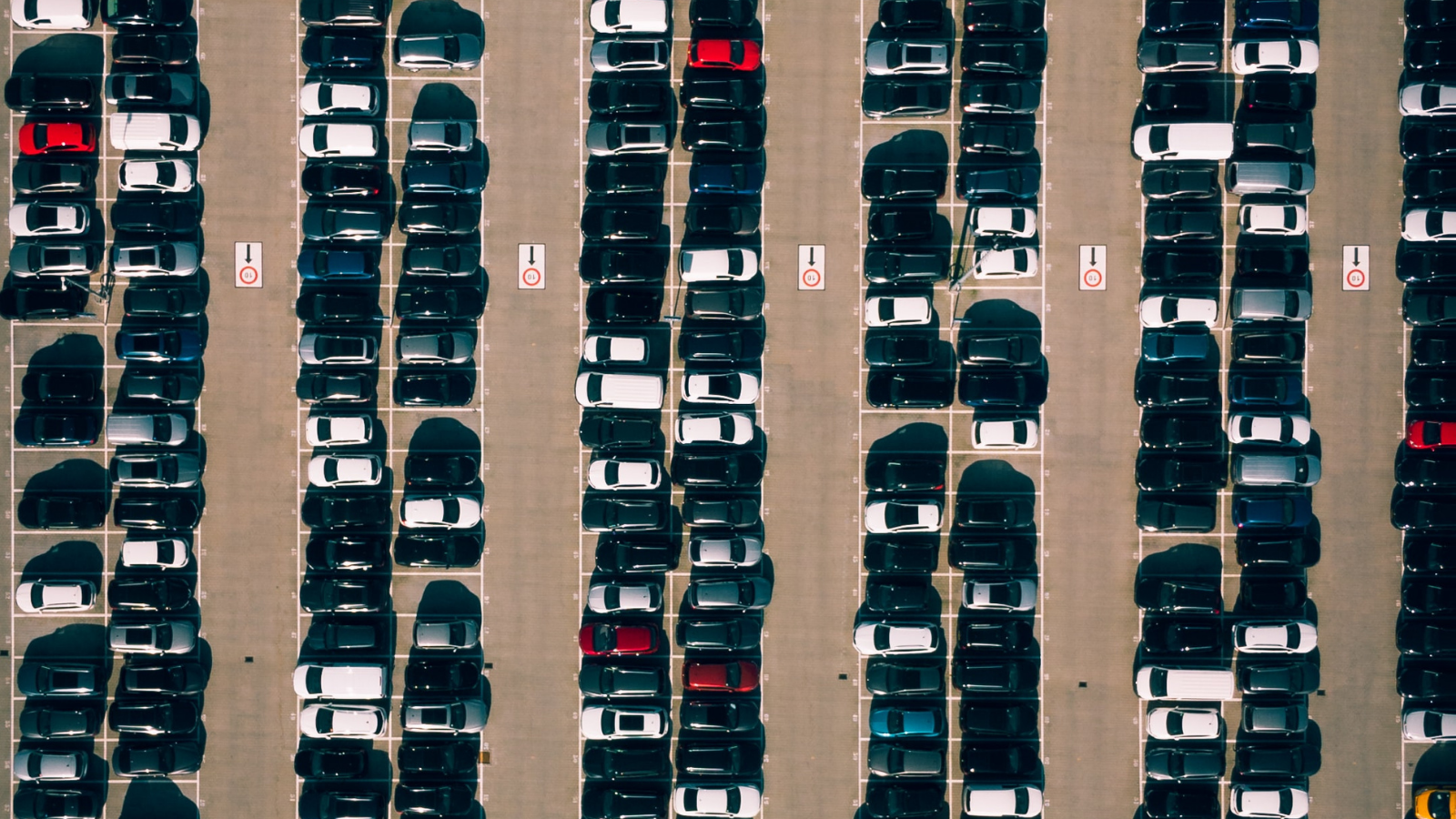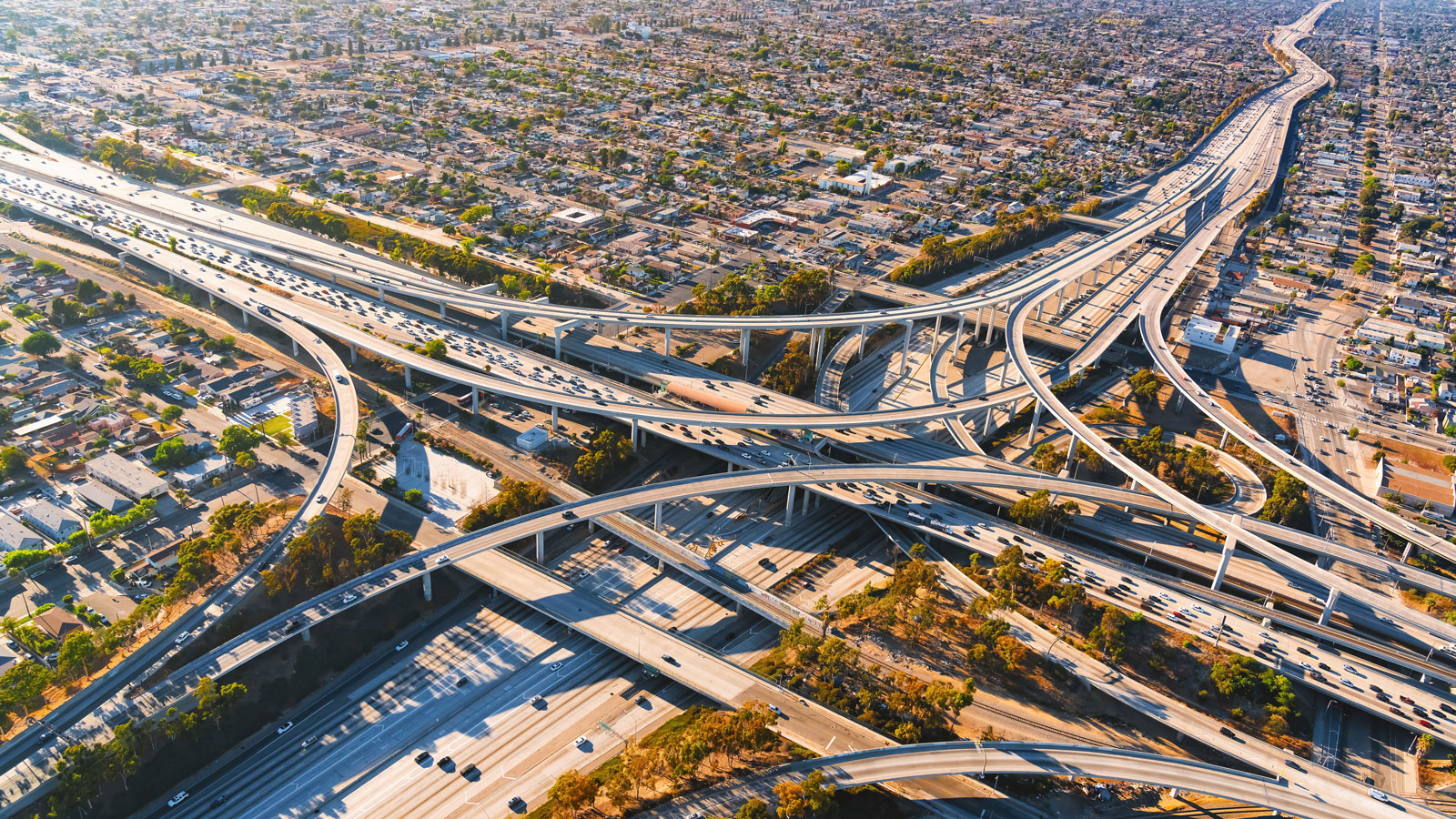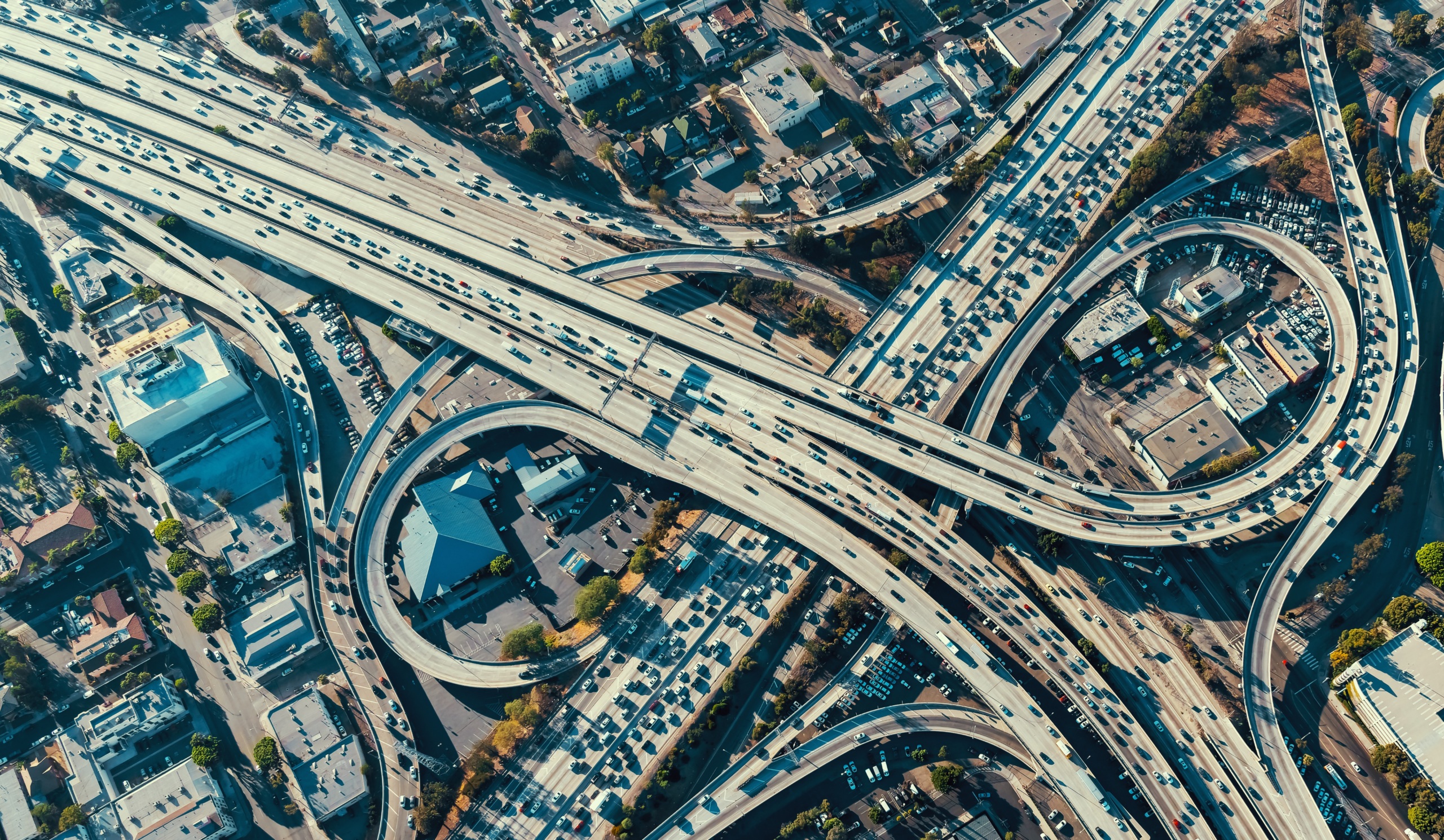Bars don’t need big parking lots. Do our cities?
By removing the shackles of mandated parking, cities and towns can lower business costs, reduce sprawl and make transit safer and more convenient for everyone. It’s time to stop prioritizing parking over people.

We know that driving while intoxicated is extremely dangerous and deadly. So why do so many bars have huge parking lots that encourage people to drive there?
Surprisingly, the number of parking spaces is often not decided by the bar. Instead, massive lots are often required by local government regulations, which force developers to build excessive parking.
For example, Los Angeles County currently requires bars and nightclubs to provide at least one parking space per three occupants, or ten spaces at minimum. Similarly, Dallas requires bars to build one parking space for every 100-square feet of floor area.
These laws strand bars in concrete lots, regardless of their location or design. Huge parking lots make bars inconvenient to access on foot and provide implicit encouragement for visitors to park their personal cars at the bar, have a few drinks, then drive home.
We rightfully take the threat of drunk driving extremely seriously—and yet, many local governments are still forcing bars to provide vast amounts of parking for patrons, encouraging intoxicated people to drive. Mandatory parking minimums fly in the face of efforts made by parents, political leaders and police to stop drunk people from driving home from the bars. Local governments shouldn’t be requiring bars to provide parking.
Beyond bars, mandatory parking minimums waste space and money
While bars provide the most outrageous example of nonsense parking regulations, these municipal codes also force homes, businesses and offices to build way too much parking, leading to a massive oversupply of asphalt.
Remember that in Dallas, one parking space is required for every 100 square feet of bar floor space. For reference, a standard parking lot requires about 300 to 350 square feet of space per parking spot to function effectively.
That means that bar parking lots are effectively required to be more than three times as large as the bar itself—what a monumental waste of space! Just imagine what your favorite bar or restaurant could do with twice as much room.
Parking minimums restrict the freedom of business owners and developers to choose for themselves how much parking space they want to offer. Instead of allowing free-market flexibility, businesses are forced into an inefficient, one-size-fits-all model by planners who often overestimate the amount of necessary parking.
Indeed, parking minimums can actually make opening a new business significantly more expensive. Professor Donald Shoup estimates that on average it costs $24,000 to construct a single parking space (not including the value of the land).
The added cost of parking is pushed onto businesses and developers. One estimate showed that providing the parking spaces required by law increased the cost of a new shopping center by anywhere from 67 to 93 percent in Los Angeles.
By ending mandatory parking minimums, local governments could dramatically reduce the cost of opening a new business without losing any revenue themselves. Granting more flexibility to developers and business owners by removing parking requirements could help rejuvenate communities and attract investment.
More parking means more pollution and more congestion
Parking requirements further entrench a car-dependent transportation system that is dangerous and unpleasant. Studies show that increasing the parking supply means more driving. That leads to more drivers competing for roads and parking in the future. It’s a vicious, unhealthy cycle.
Parking lots make getting around town frustrating and slow. Mandating excessive parking forces buildings to strand themselves in concrete “deserts,” which are unpleasant and dangerous to travel through. The resulting sprawl limits residents’ options to travel safely by foot, bicycle or public transit, forcing everyone into cars.
Motor vehicle crashes seriously injure a shocking 4.5 million Americans annually. Air pollution from automobile emissions increases the risk of lung cancer, stroke and heart disease, cutting short an estimated 58,000 lives every year. Transportation is also America’s number one source of carbon pollution, worsening a climate crisis linked to deadly wildfires, hurricanes and floods.
Mandatory parking minimums were originally implemented to ensure sufficient parking in cities and towns. But decades of pro-parking policy have gone way too far, transforming too many of our towns and cities into dangerous concrete wastelands accessible only by car. This urban design perpetuates a car-dependent transportation system that is harming our health, our environment and our quality of life.
Put people over parking
At the minimum, local governments, such as those in Los Angeles and Dallas, must remove mandatory parking requirements for venues where alcohol is consumed. However, local governments shouldn’t stop there: They should end all mandatory parking minimums.
Of course, ending mandatory parking minimums is just one step toward a cleaner and safer transportation system. We need investments in pedestrian, bike and transit infrastructure to improve car-free mobility. At the same time, reducing the amount of land wasted on parking is essential to making our cities more accessible.
By removing the shackles of mandated parking, cities and towns can lower business costs, reduce sprawl and make transit safer and more convenient for everyone. It’s time to stop prioritizing parking over people.
Topics
Authors
Mac Dressman
Find Out More

A threat to federal climate investment: Highway boondoggles

Important wins for Texas consumers this legislative session

America needs a “roads review”


